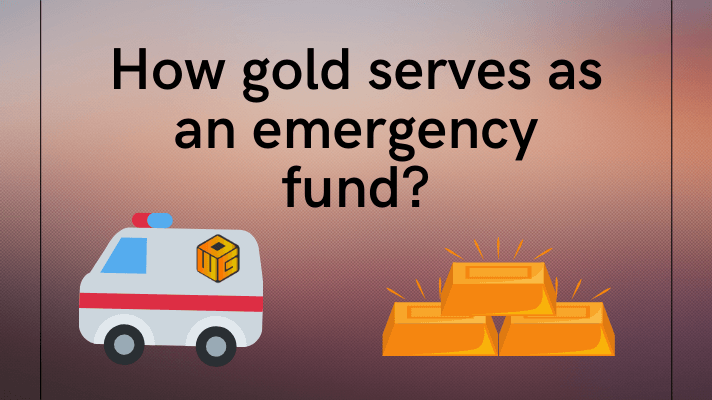How gold serves as an emergency fund?
If we have read any financial literature before (from books, websites, blogs, etc.), we would have heard the term ‘emergency fund.’ Typically, the financial gurus would suggest having an emergency fund of about three to six months’ worth of expenses. Some would resort to a more conservative approach by saving three to six months’ income. Either way is acceptable, to be honest, though the former is a good start. Ideally, these funds are not to be touched under any circumstances unless the situation is an emergency. It should be noted that investing in other financial instruments is not recommended until these emergency funds have been fully prepared.
The matter of liquidity
Further, these funds are expected to be in ‘liquid’ mode, meaning they are kept in the form of cash in the bank to facilitate ease of withdrawal whenever needed. Some people might consider having a portion of their emergency savings in the form of gold in case they have concerns about accidentally spending the money elsewhere. Gold has a different aura and emotional impact on their savers; hence can be helpful in this regard.
Gold attracts wealth
Interestingly, after we convert our savings into gold, the desire to spend the gold away is highly unlikely to occur. Instead, we would be excited to collect more gold. Even when you are in a tight budget situation, the tendency to sell off the gold may not be substantial. Imagine if we had the same amount of money in cash (in the absence of gold savings), we would have utilized it to buy new curtains or car sport rims.
Hence, based on this rationale, we can safely say that gold is the magnet of wealth, and it attracts wealth as a consequence. Not because the gold price would skyrocket and make the gold savers rich, but rather because wealth stays with us against all odds.
Which one remains? The number or purchasing power?
When we say that we ‘lose’ money over time, it is not referring to the numbers. For instance, SGD10,000 kept in the savings account will remain the same over the years (plus the interest, if any). However, the purchasing power eventually matters as it determines the convertibility of our money for goods and services. Keeping money in the bank might retain the number, but it is a ticking ‘time bomb’ as the value is ‘evaporating.’ On the other hand, Gold retains the purchasing power even when it undergoes price volatility in the short term.
Real-life incident on currency risk
In 2015, the Malaysian Ringgit dropped by 30% compared to the US Dollar. This simply means that the Malaysian ringgit has fallen by 30%, thereby increasing the price of goods and services. In such instances, keeping our money in other financial tools with five to eight per cent dividend/returns makes no sense when our money loses by 30%. Gold does not get affected by such news, but due to the currency risk seen in the Malaysian Ringgit, the gold price shoots up when the Ringgit collapses.
Ultimately, gold serves as a check-and-balance between inflation rate and currency instability.
If you find this article useful, consider sharing this with your friends and family. Let's create awareness about our money because nobody will come forward to help us.
Easy way to start gold savings can be found here: Gold Accumulation Program
Join my Facebook page for free here: FB page
Hope you find it useful.
Your buddy on gold investing,
Naresh G

